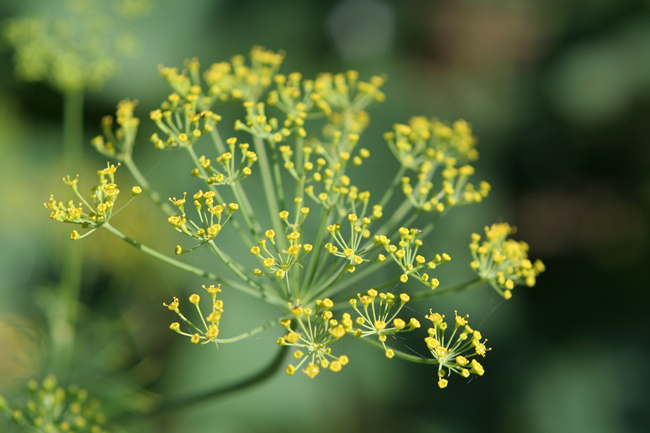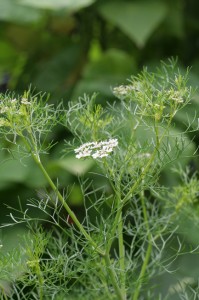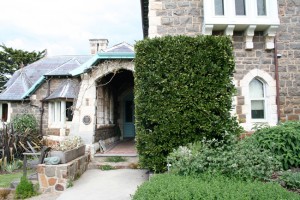Dill, Anethum graveolens, is a delightful tall annual herb that grows to about 1 m from a taproot, with a single stem and many feathery blue-green leaves and branches. These are topped by groups of umbrella-shaped flower heads made up of small yellow flowers. The flowers are followed by flat, oval, brown seeds, which self-sow readily if left on the plant. Dill is probably one of the oldest medicinal herbs. It was used by the Egyptians before 3000 BC. The name dill is found in several old European languages, reflecting its widespread use, but its derivation is unclear. In medieval times, dill developed a reputation for protecting anyone who carried it against witches. It was a common ingredient in potions and spells and English country brides would wear a sprig of dill on their wedding day, while in Germany, a bride would put dill and salt in her shoes to bring her good luck. By the beginning of the seventeenth century dill was grown in many countries all over the world because it was known as ‘a gallant expeller of wind’. Read more
Coriander, also known as cilantro and Chinese parsley, is one of the most ancient herbs still in use today. It is also claimed by some to be the world’s most widely used herb. Whether this is true or not, coriander leaves and seeds are essential to the cuisine of central and southern America, South-East and northern Asia as well as India and the Middle East.
History
Coriander comes originally from southern Europe where the seeds have been used for centuries, but the leaves were not usually used. Coriander seeds have been found in Egyptian tombs dating from more than 3000 years ago. The Egyptians cultivated coriander in their gardens and offered it at funeral ceremonies. It was used by Hippocrates and other Greek physicians as early as the fifth century B. C., while the Chinese considered that coriander had the ability to bestow immortality. This plant has the distinction of being one of the few herbs mentioned in the Old Testament Num. 11:7
“Now the manna was like coriander seed.”
The botanical and common name, coriander, comes from the Greek word koris which means ‘bug’. This presumably relates to the fact that the smell and flavour of coriander has been unfavourably compared with that of stink bugs. Read more
Sweet bay (Laurus nobilis ) was seen by the old herbalists as a virtuous tree which “resisteth witchcraft very potently”. The Greeks dedicated it to Apollo, the sun god. The Delphic priestesses, oracles of Apollo, held bay leaves between their lips as they made prophesies. In Greek and Roman cultures victors, heroes, academics and artistic figures were rewarded with a wreath or crown of bay leaves. This gave rise to the terms ‘baccalaureate’ and ‘poet laureate’. Read more



